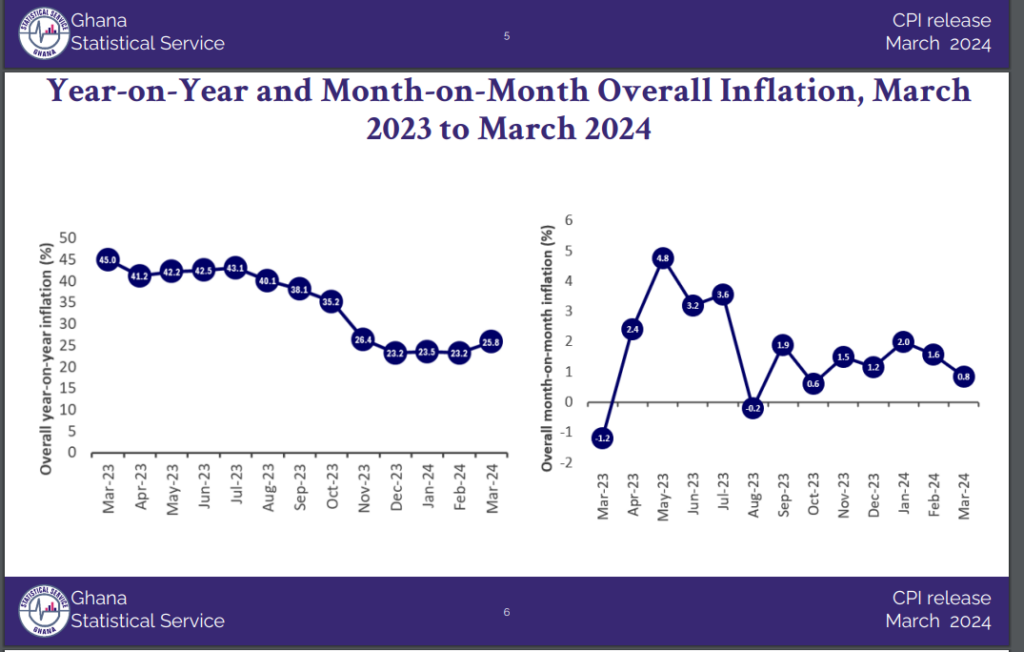
Inflation rate for March 2025 declined to 22.4%, down from 23.1% in February, according to the latest data from the Ghana Statistical Service (GSS).
The slowdown in price increases was largely due to a reduction in food inflation, which had been a major driver of rising costs in previous months.
The food inflation rate dropped to 26.5% in March, compared to 28.1% in February, reflecting lower price increases for key food items. Meanwhile, non-food inflation saw only a slight dip, declining from 18.8% in February to 18.7% in March.
A more noticeable reduction was observed in locally produced goods, where inflation dropped from 25.1% in February to 24.0% in March. However, imported goods saw a slight uptick in inflation, rising from 18.5% to 18.7%, indicating persistent external cost pressures.
Read Also: South Africans dominate Forbes’ 2025 Africa richest list, followed by Nigerians
Among the various sectors, Food and Non-Alcoholic Beverages saw an inflation rate of 26.5%, while Housing, Water, Electricity, Gas, and Other Fuels recorded 25.1%—both exceeding the national inflation rate of 22.4%. These categories continue to have a significant impact on household spending.
Regional disparities in inflation remained evident, with the Upper West Region recording the highest rate at 36.2%, while the Volta Region had the lowest at 18.9%.
The decline in inflation suggests that price pressures may be easing, particularly in the food sector.
Meanwhile, the GSS notes that the increase in imported inflation highlights ongoing global economic influences.
The post Inflation rate falls to 22.4% in March, driven by lower food costs – GSS first appeared on 3News.
Read Full Story













Facebook
Twitter
Pinterest
Instagram
Google+
YouTube
LinkedIn
RSS